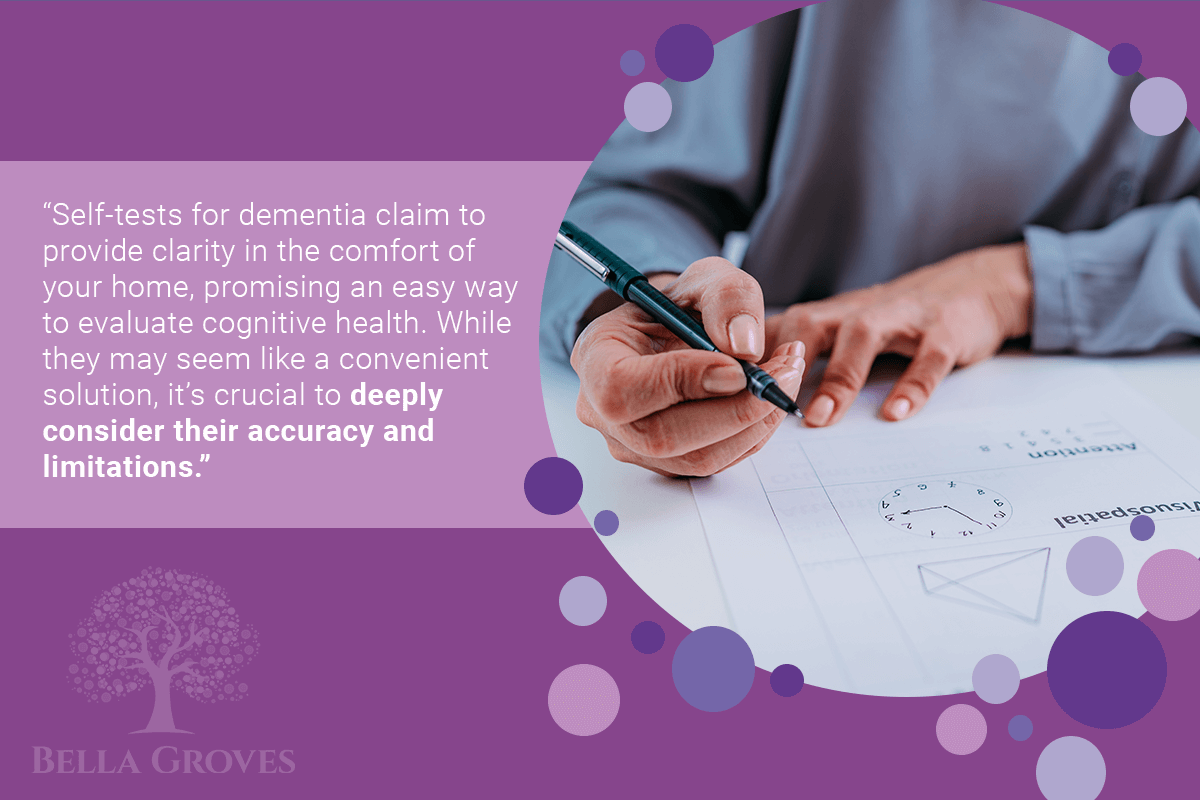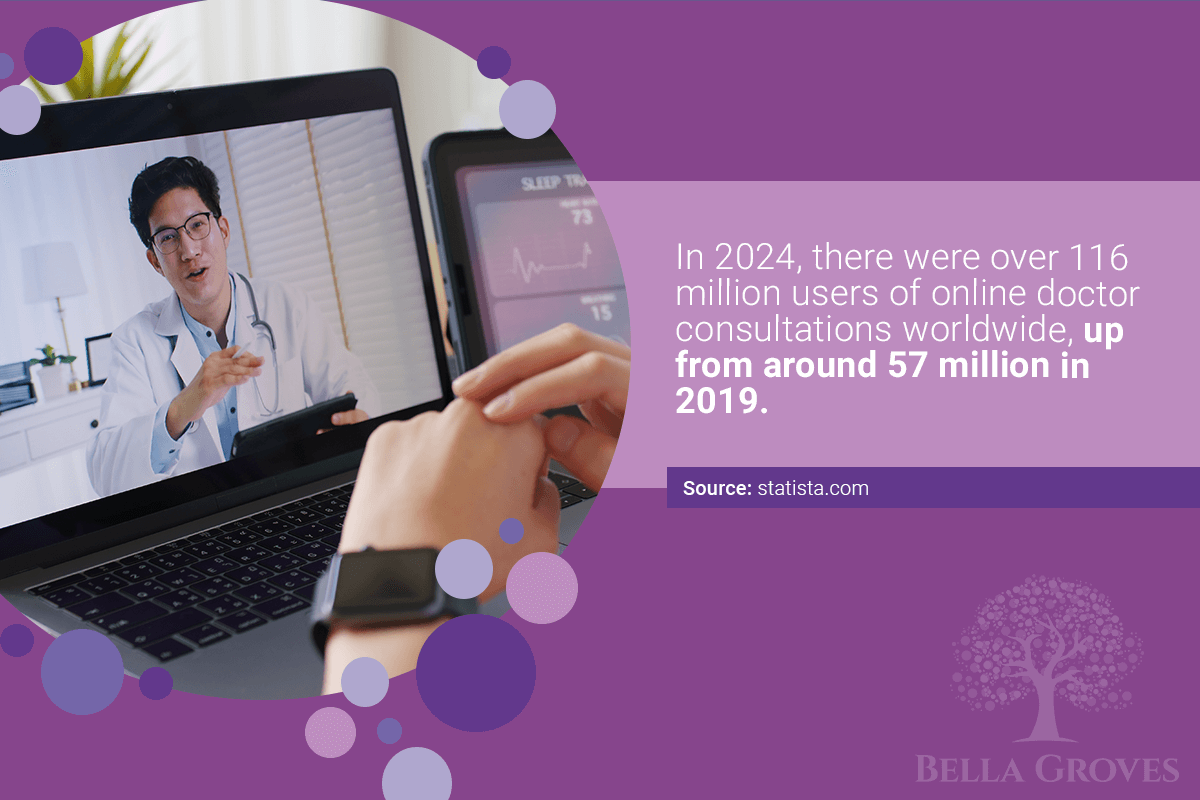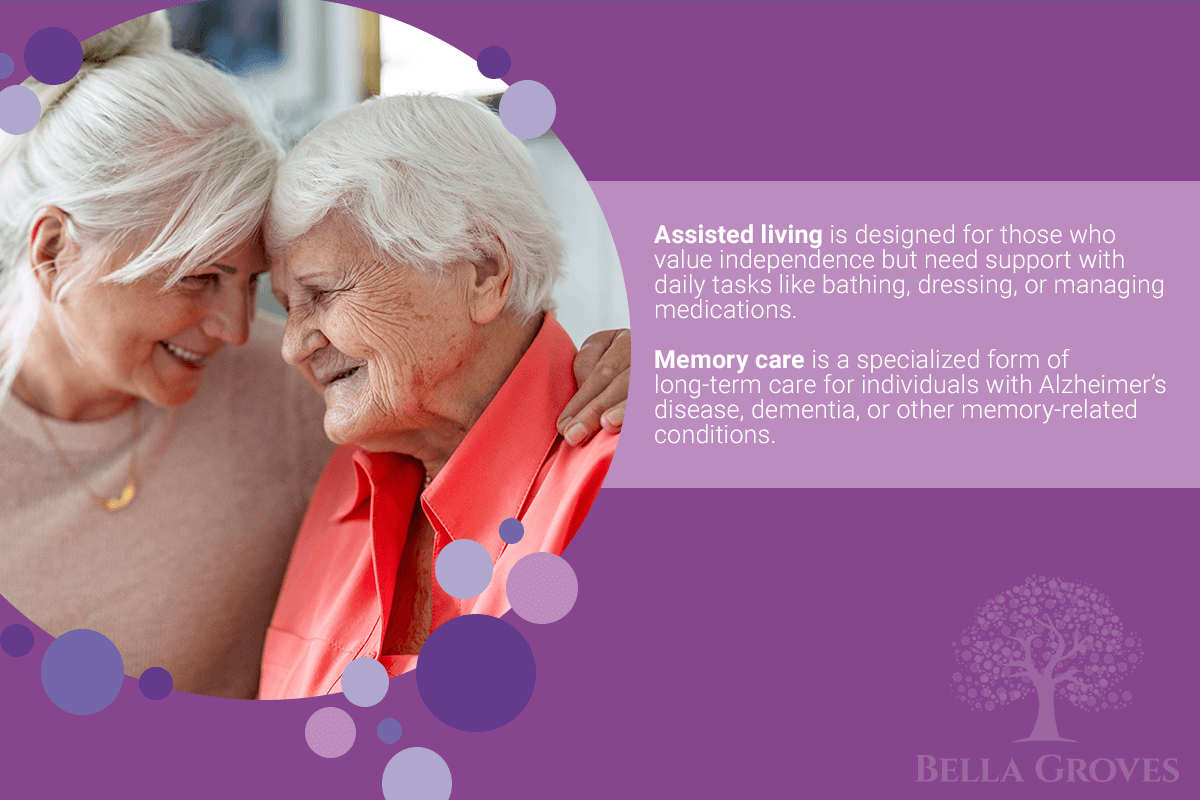
Should You Try Self-Tests for Dementia?
Discovering memory lapses, confusion, or changes in behavior in yourself or someone you care about can be unsettling. Dementia, a condition that impairs cognitive function, affects millions of individuals and their families worldwide. It often brings a mixture of uncertainty and concern about the future. For many, the search for answers begins with understanding—and this is where the conversation about dementia home tests arises.
Self-tests for dementia claim to provide clarity in the comfort of your home, promising an easy way to evaluate cognitive health. While they may seem like a convenient solution, it’s crucial to deeply consider their accuracy and limitations.
At Bella Groves, we believe in empowering you with the knowledge and dementia education you need to make the best decisions for your situation. Read on to understand how these tests compare to traditional medical diagnoses and what role they might play in your caregiving or health journey.
How is Dementia Traditionally Diagnosed?
For decades, diagnosing dementia has been the work of skilled healthcare professionals, using scientifically validated tools and techniques to provide answers. Here’s a quick overview of traditional diagnostic processes:
1. Cognitive and Neurological Testing
Doctors often begin by assessing memory, attention, problem-solving abilities, and language skills. Tests like the Mini-Mental State Examination (MMSE) help provide an initial insight into cognitive decline.
2. Imaging and Labs
MRI scans or CT scans might be used to rule out other causes of cognitive symptoms, like strokes or brain tumors. Blood tests can also help identify conditions that mimic dementia symptoms, such as vitamin deficiencies or thyroid issues.
3. Medical History and Observation
Family members or care partners play a crucial role in the diagnosis process. A physician will often rely on their accounts of changes in behavior, daily activities, and overall mental health.
While these methods are effective, there are challenges that might lead some to explore alternative options like home tests.
- Accessibility: Getting an appointment with a specialist may take weeks or months.
- Cost: Depending on insurance coverage, diagnostic processes can be expensive.
- Fear of Diagnosis: Many hesitate to seek professional help out of fear of knowing the truth.
These hurdles are why many people turn to more accessible and seemingly easy-to-use dementia home tests, but are they the right option for you or someone you care about?
Understanding Self-Tests for Dementia
Home tests for dementia aim to provide early insights into cognitive health without a trip to the doctor. They come in various forms, including:
- Paper-based tests, such as the Self-Administered Gerocognitive Exam (SAGE), involve completing writing and memory tasks and are often freely available online.
- Digital tools like apps or software offer questionnaires or simple games to assess cognitive abilities.
- Wearable technologies track activity and health trends that could be linked to cognitive issues, such as sleep patterns or mobility changes.
Pros and Cons of Self-Tests for Dementia
Home tests have both advantages and drawbacks. On the positive side, they are accessible and convenient, often available online, and are easy to complete from the comfort of home. They can also be cost-effective, with many tests offered for free or at a lower cost compared to professional consultations. Additionally, they may help raise early awareness, encouraging individuals to take their cognitive health more seriously.
However, there are significant downsides. Many of these tests have limited accuracy due to a lack of clinical validation, which can lead to false positives or negatives. The absence of professional interpretation can make the results difficult to understand, leaving users without proper guidance. Furthermore, misleading results may either create a false sense of security or cause unnecessary worry and panic.
While home tests can be a useful starting point, it’s important to approach them with caution, as they are not a substitute for professional diagnostic tools.
Why Accurate Diagnosis Matters
The challenge with relying on home tests lies in their inability to provide the holistic diagnosis required for dementia. While tests might detect cognitive impairment, they can’t identify other conditions that mimic dementia symptoms, like depression or medication side effects. Similarly, even if issues are present, a formal diagnosis may be needed to access treatments, resources, or supportive care.
For care partners, understanding exactly what a person living with cognitive impairment is facing is vital in providing proper care—this comes from the dementia education professional diagnoses provide.
A Holistic Approach for Individuals and Care Partners
If you’re considering a home test for dementia, it’s important to use them as a complementary step, not a replacement for professional diagnosis. Here’s how:
- Use It as a Conversation Starter: If a home test raises genuine concerns, bring the results to your doctor for review.
- Focus on Changes Over Time: Track symptoms or behaviors over a period of time to share comprehensive information with healthcare providers.
- Know When to Seek Professional Support: When signs of memory loss or confusion are persistent, reach out to a professional to gain a thorough understanding.
At Bella Groves, we recognize the challenges that come with exploring dementia concerns. Whether you’re caring for a person with cognitive impairment or assessing your own cognitive health, having someone to guide you through this sensitive time can make all the difference.
When in Doubt, Reach Out
Home tests for dementia can be an accessible first step in understanding cognitive changes, but they are not a substitute for professional help. A secure, accurate diagnosis requires the insights of medical experts who can examine your symptoms and history holistically.
If you’re a care partner worried about someone you know or are feeling uncertainty about your cognitive health, consider the support available at Bella Groves. Our compassionate team is here to help you access tools, resources, and a community of care—all tailored to your individual needs.
Take the first step today by contacting Bella Groves. No one has to face dementia alone.


